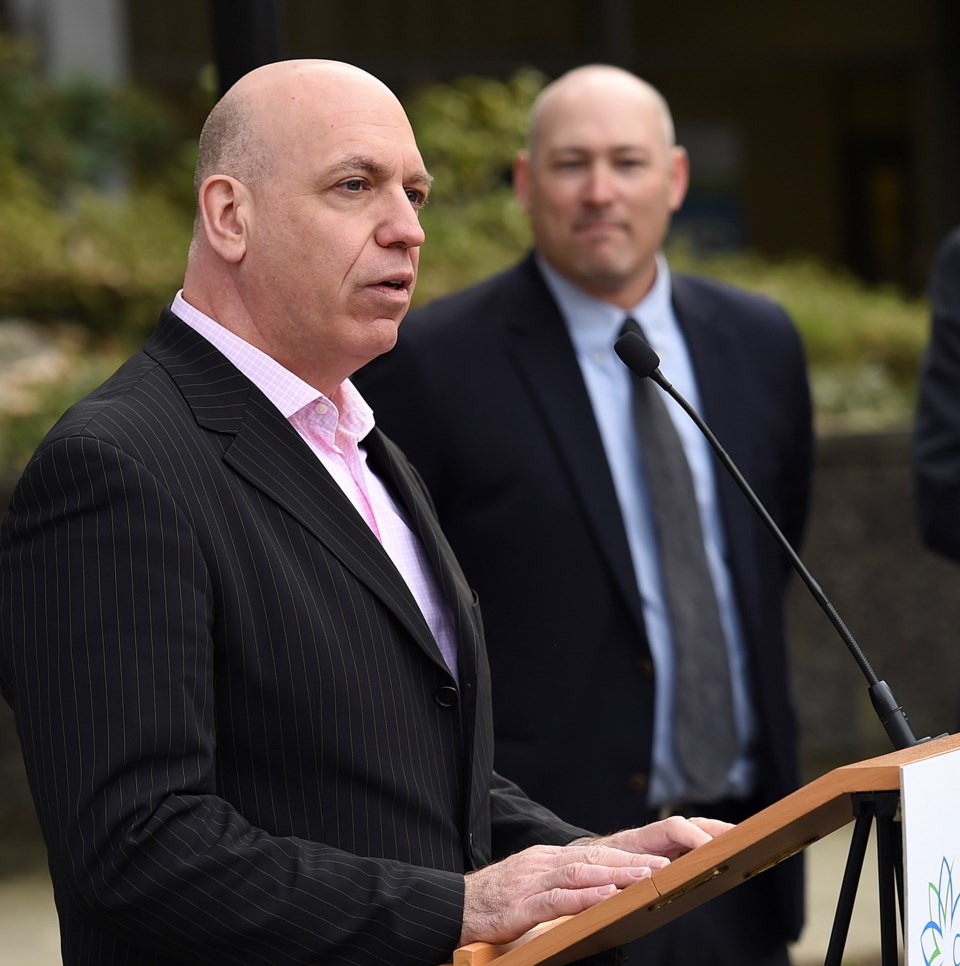So you probably know now that the story I wrote a couple weeks ago about the city’s plan to permanently close the 800-block of Robson Street to traffic was not a work of fiction or some leftover April Fool’s Day knee slapper.
You know that because the city released a report confirming its plan to turn the stretch of Robson Street, between Howe and Hornby streets, into a pedestrian plaza. (It’s actually closed today to allow marijuana protesters to participate in a 4-20 event.)
Council will discuss a year-round closure this morning.
I won’t go over all the reasons for closing the block but essentially it’s about connecting the existing plazas on the south side of the stretch (at the law courts) with the north side of the street (the Vancouver Art Gallery) to have one big super plaza.
So, is everybody happy about this?
As I mentioned in the story, seniors have concerns with the re-routing of the No. 5 Robson/Downtown bus. So does TransLink, which would prefer buses continue on the route but says it will support a year-round closure. This way, it doesn’t have to keep rerouting buses every summer; the stretch has been closed between June and September since 2011 and was closed during the 2010 Winter Olympics.
When I wrote the story, I contacted Charles Gauthier, executive director of the Downtown Vancouver Business Improvement Association. I knew he had told our colleagues at Business in Vancouver in April 2015 that the association could no longer support the summer closures of the street because it was too disruptive for customers and deliveries.
Gauthier wouldn’t talk to me, saying he wanted to first read the city’s report. He did and then we had a conversation. And, if you’ve been watching this issue, you know the association now supports the closure of the block.
“I was pleasantly surprised by the support I was hearing from the building owners in the immediate area,” Gauthier said. “So based on that, our original concerns sort of fall off the table. We’re not certainly going to speak to an issue and be against it, if our building owners are telling us that this is something that is workable.”
So what do you think, readers, is this a flip-flop? Did Gauthier and his association drink the city’s green Kool-Aid? Or is there something more going on here?
Well, it’s not the first time the association has come around on an issue that it panned from the get-go. Examples would be the association’s early opposition to the city’s push to build separated bike lanes downtown and the plan to demolish the Georgia and Dunsmuir viaducts.
Eventually, after reviewing the city’s data and hearing from businesses and customers, the association gave both proposals the green light. So here’s the thing: The public and council can likely expect more of that green-lighting from the association on progressive city-shaping proposals.
That’s because of a “game changer” of a report the association and Simon Fraser University Public Square produced last year. The report, Re-Imagine Downtown Vancouver, was the result of asking 11,000 people what they want downtown to look like by 2040. Hint: It doesn’t involve freeways. Instead, we’re talking more green space, public art, pedestrian and bicycle-friendly routes, activation of alleyways, new housing options and a unique and vibrant business scene.
“That sets the tone,” Gauthier said of the document. “It’s a new day, it’s a new era and, yes, things are going to change. And the organization’s perspective on a variety of different positions is going to be different.”
Added Gauthier: “I don’t think it’s necessarily a bad thing to change your perspective. But I think, again, when we’ve heard 11,000 people say this is the kind of downtown we want by 2040 and we ignore that, then I think it would be arrogant. We put ourselves at risk of alienating those people and becoming irrelevant.”
He said some downtown building owners have already adapted to the change, noting one ardent opponent of the bike lanes is now on board because his tenants requested end-of-trip facilities for bikes.
“The 30-year olds and the 40-year olds have a different perspective of how they want to live. They have different expectations and they don’t necessarily have a car. Or they live in the downtown area and do a lot of walking or cycling. So again, it’s listening to your customers.”
And get this: Not only was Gauthier one of the speakers at a city hall event in February to promote the soon-to-launch public bike share program, he also participated in a recent downtown bike tour with the HUB cycling coalition.
The nerve of him.
@Howellings



